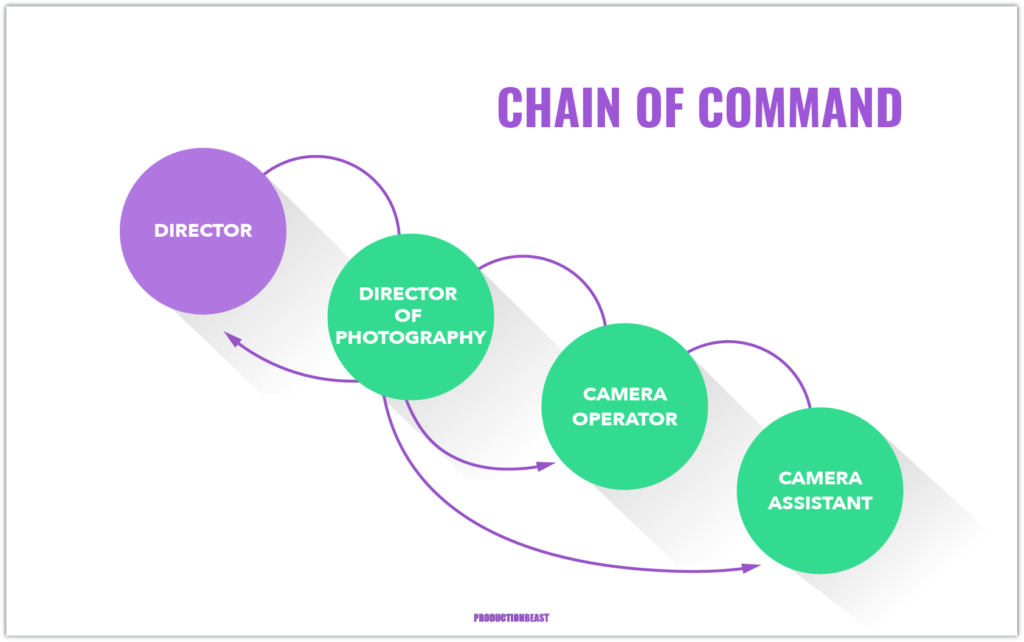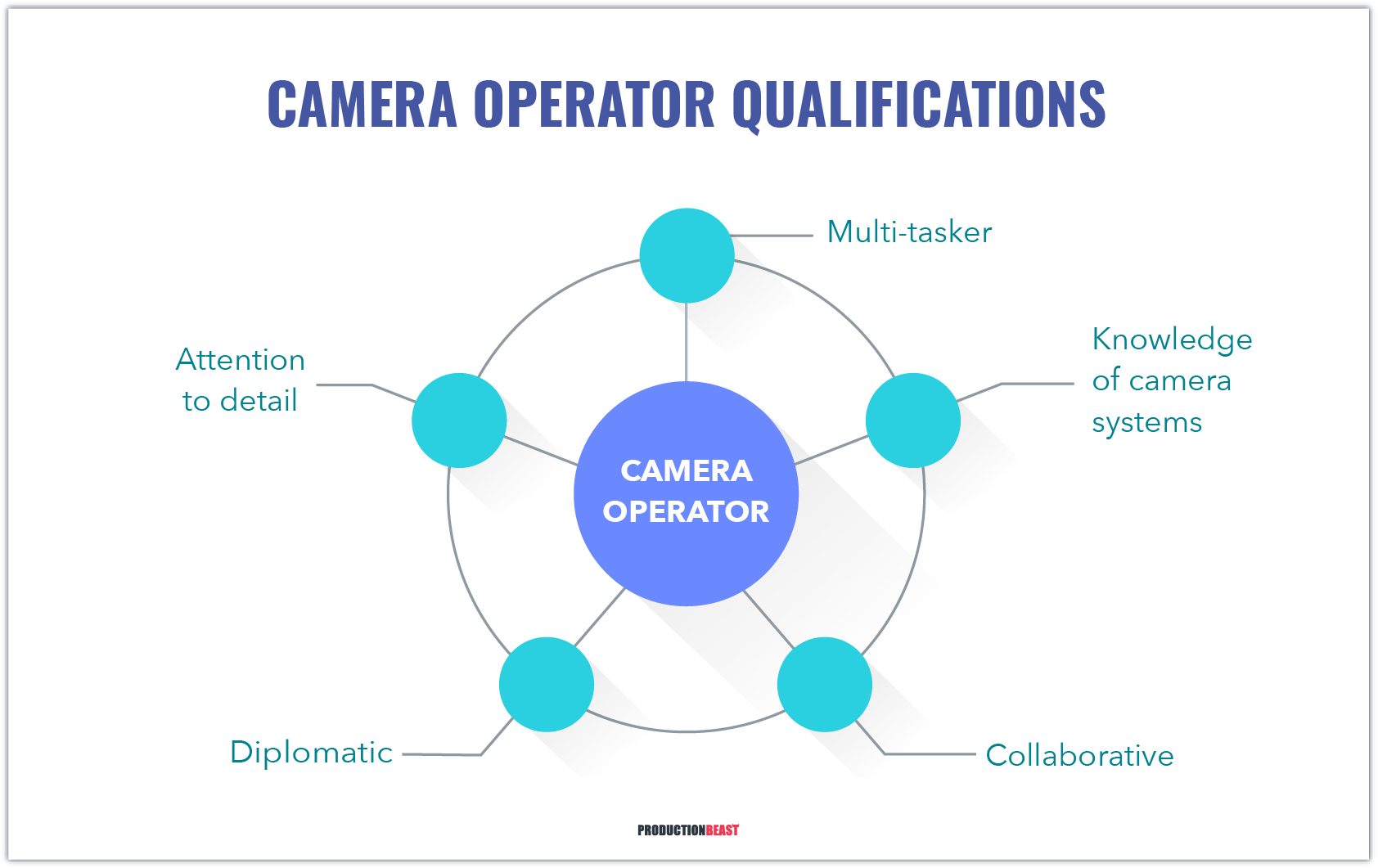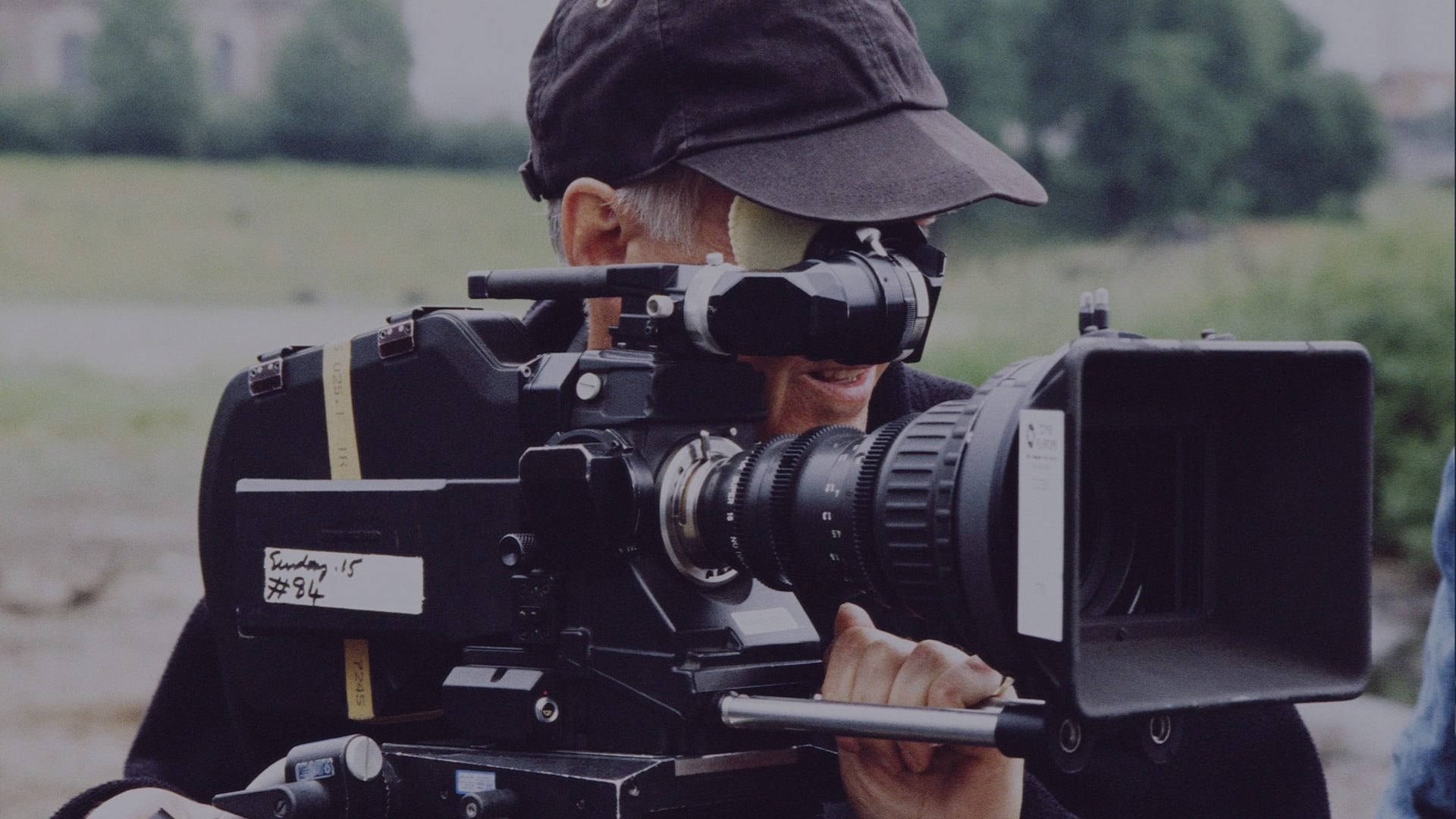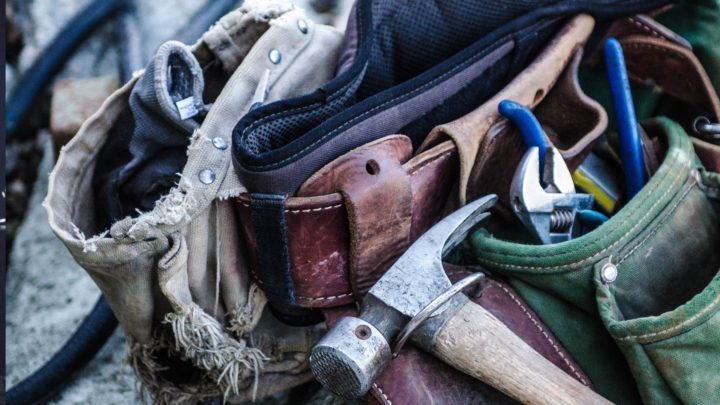Camera operator jobs are essential to any production. Working under the Director of Photography, they are instrumental in achieving the visual style of the film.
More than that, though, they’re also the leader of a small team of camera specialists, all working together to make the film as beautiful as possible.
Here’s everything you need to know about how to become a camera operator, including camera operator salary and camera operator jobs.
What does a camera operator do?
In film and video, camera operators are responsible for the composition of a shot.

The camera operator job description entails more than looking through a lens. Image PBS
Typically, camera operators enter a project at the end of pre-production.
They report to the director of photography and director. As part of earning their cameraman’s salary, they are also responsible for a team of camera assistants.
This includes the first assistant camera, second assistant camera, and the film loader.
Once the director and DP have blocked the shots, the DP and camera operator determine their approach to shooting.
This is where they will decide where to position the camera and what lenss to use.
Collaboration is key if you want to earn your camera operator’s salary.
Here, the operator also communicates with the gaffer, production designer and other department heads about how the camera position might affect their work.

Communication is key for any camera operator.
Once production begins, camera operator jobs cover all aspects of camera operation.
They prepare the camera and accessories for the scheduled set-ups and adjust them as needed.
They will alter shots and suggest creative alternatives if the director requests it.
The camera operator supervises all logistics of camera movement and oversees camera maintenance.
Camera operators also work closely with the actors, informing them of when the camera can and cannot see them.
Sometimes the DP operates their own camera.
In those cases, the camera operator will focus on the maintenance and upkeep of camera equipment. You’ve got to do work if you want to earn your cameraman’s salary
Since work days can stretch from 12-14 hours, so camera operators must possess strength and stamina.
Camera operator skills
Certain skills are essential if you want camera operator jobs.
Here are the important traits you must master.

Adhering to these skills is essential for camera operators
- Have good working knowledge of all camera systems, lenss, support equipment and accessories.
- Have a good sense of visual composition, perspective, and movement.
- Pay close attention to detail.
- Be able to collaborate and work as part of a team.
- Be diplomatic and sensitive when working with artists and other crew members.
- Be informed about health and safety set procedures.
- Be able to multi-task. To watch, listen and think on your feet while carrying out intricate technical tasks.
It takes more than simply looking through a lens to acquire camera operator jobs and earn a cameraman’s salary.
Adhering to these skills will help an individual progress in their camera operator career.
Camera operator qualifications
Although most camera operator job descriptions don’t list any specific education requirements, most tend to come from a film school program.

Film schools lay a foundation for camera operator education. Image New York Film Academy
Most camera operators hold a bachelor of arts degree in film and video production or a related field.
Courses in these programs focus on camera operator training. They'll cover equipment, shooting techniques, and general set preparation. All the basics you need to start your camera operator career.
Film schools offer camera operators an opportunity to learn more about cinematography.
They also provided an introduction to camera operator jobs through internships, production assistant work, and camera assistant work.
A degree in film and video can also have an influence on camera operator salary, even if it’s not an essential camera operator qualification.
Here’s a look at some of the top film schools.
Camera assistants
Although paths to camera operator jobs vary. But a common answer to “How to Become a Camera Operator” is “work your way up the camera crew”.
They can be vital steps on the path towards earning a cameraman’s salary.
Here’s a look at the camera assistant positions that can start a camera operator career.
Film loader
The film loader handles the medium the camera shoots on, whether that be film or digital.
Traditionally the film loader would go into a dark room, open the packets of film stock and load them into the camera magazine.
They would then transfer the magazine to the 2nd AC who would attach it to the camera.
The film loader would then repeat the process by collecting and storing the used film.
With the advent of digital technology though, the film loader now works with memory cards.
In this case, the loader is known as a D.I.T. (Digital Imaging Technician).
The D.I.T. manages the digital inventory and backs up the footage onto a hard drive.
After a shoot, the D.I.T. will check the quality of the material and hand the footage off to the post-production team.
Second assistant camera
The second AC operates the clapperboard or slate at the beginning of each take.
This camera assistant will also attach the camera magazine to the camera and oversee the transportation of camera equipment.
The second AC will also tape down camera marks for the actors and update camera reports.
Camera reports include information like aperture and focal length for the editor's notes, in case reshoots are necessary.
Reshoots are usually necessary.
First assistant camera
The first AC is often the last step in how to become a camera operator, as they are the camera operator’s right hand.
During pre-production, this camera assistant will travel to rental houses to test equipment and make sure everything is ready.
Once production begins, the first AC is in charge of keeping the camera in focus.
The first AC will also build the camera, change out lens, and move the camera from shot to shot.
They are also responsible for updating a dope sheet.
No, no, it’s not what you think.
A dope sheet is a camera report that lists scenes that have been shot.
Also, the first AC will not look through the camera lens. They will pay attention to the distance between the subject and the camera in order to pull focus.
Once you have proven yourself in the first AC position, you might be ready to apply for a camera operator position on Production Beast. Check the website for available openings and if you meet the camera operator job description!
Becoming and mastering a camera assistant position will teach you important camera operator skills needed for camera operator jobs.
Camera operator salary
According to the Bureau of Labor Statistics, the median annual camera operator salary in 2016 was $55, 080.
The lowest 10 percent of camera operator salaries were less $24, 940, and the highest 10 percent of cameraman salaries were more than $109, 200.
Union daily rates for studio jobs are set at a minimum of $639.81, with a weekly payout at $2, 574.80.
The daily rate for a non-union camera operator largely depends on experience.
For beginning camera operators, the range is usually $250 to $500 per day.
More veteran camera operators earn between $550 and $1,000 per day.
These rates are determined as part of the industry-standard 10 hour work day.
Any time over 10 hours is often paid at 1.5 times the regular hourly rate.
Keep in mind, these numbers are all relative as camera operator salary is dependent upon experience and geographic location.
States with the highest camera operator salaries are also states with the highest levels of camera operator jobs.
Location should always be a consideration when thinking about camera operator salary.
Of course, as freelancers, the most important thing to be considered when talking about a cameraman’s salary is how often he or she works.
More jobs? Higher salary. Hop on to ProductionBeast if you want to see what’s available now!
Camera operator guild
The International Cinematographers Guild Local I.A.T.S.E. 600 represents all working camera technicians.

The Local 600 ensures the health and safety of camera operators.
Guild members enjoy a variety of benefits including:
- Comprehensive medical coverage
- Two employer-funded retirement programs
- Premium pay for overtime
- Travel, housing and per diem for location shoots
- Contract safety and health protections
- Union and legal representation
The primary responsibility of the guild is to handle the logistics of camera operator jobs.
This includes negotiating contracts, enforcing minimums on cameraman salaries, and protecting members from producer exploitation.
The guild also provides a resource called The Available List.
This service allows producers and production managers to search for available guild members. Whether they're seeking camera operator jobs and camera assistant jobs.
Society of camera operators
Besides The Local 600, camera operators can also join the Society of Camera Operators. The SOC doesn’t help with the cameraman’s salary but instead seeks to promote the art and craft of the position.

The Society of Camera Operators hosts the annual SOC Awards.
This honorary society hosts a variety of classes and networking events. Most notably, the annual SOC Awards which honors the most influential camera operators in the industry.
The society also educates members and the public about advances in camera operator jobs and technology.
They also release Camera Operator Magazine quarterly.
COM conducts interviews with leading professionals and provides insight into emerging trends in technology and camera operator jobs.
Whether you’re an aspiring camera operator or a veteran of the industry, familiarity and engagement with these organizations is beneficial.
Wrapping up
Legendary cinematographer James Wong Howe once said, “I believe that the best cameraman is one who recognizes the source, the story as his basis of work.”
As mentioned, the camera operator job description entails more than just looking through a lens. By now, you have a better answer to the question: “What does a camera operator do?”
With their eye for detail and understanding of narrative, they contribute just as much to the story as anyone.
Continuing your education in cinematography techniques and storytelling will help in getting you the camera operator jobs and the cameraman’s salary you desire.
Ready to get started? Sign up with Production Beast to find movies looking for the eye of a camera operator.
LIKE THIS POST? SHARE IT!
"A Complete Guide to Camera Operator Jobs: Keep Your Eye on the Prize" #filmmakers






